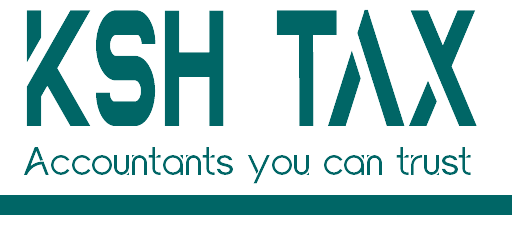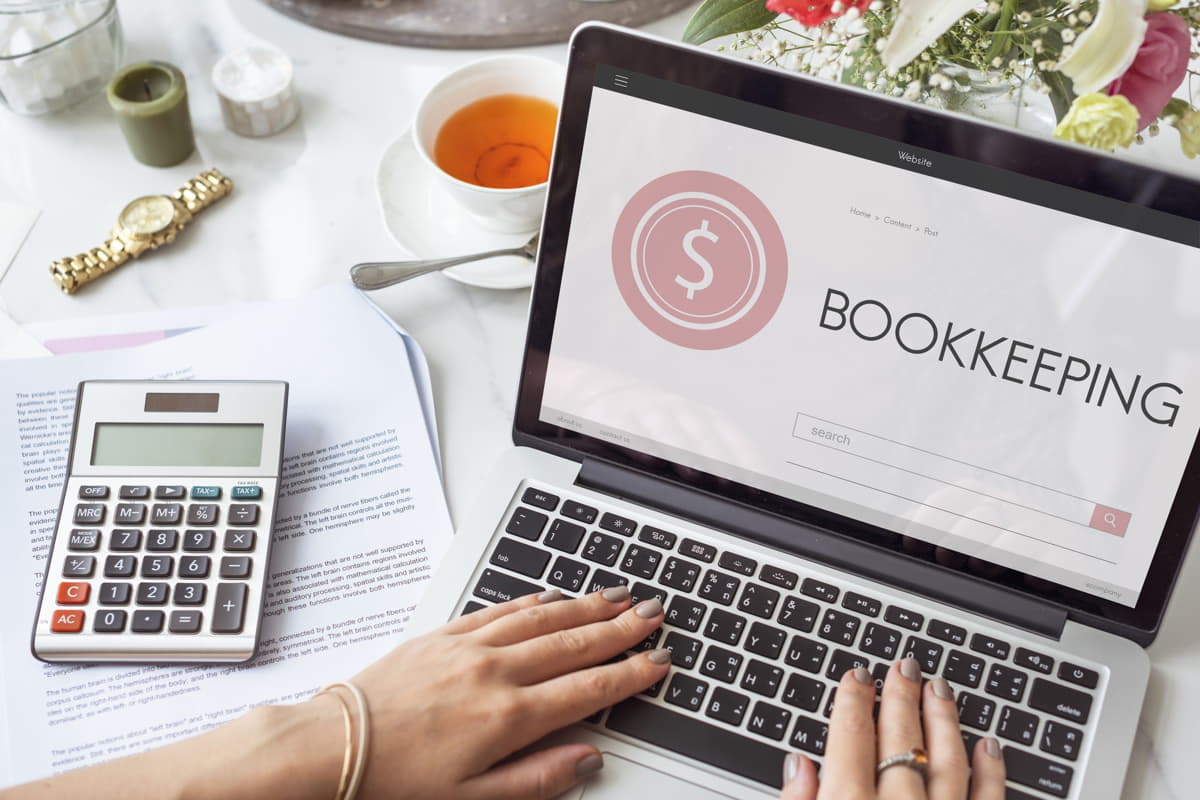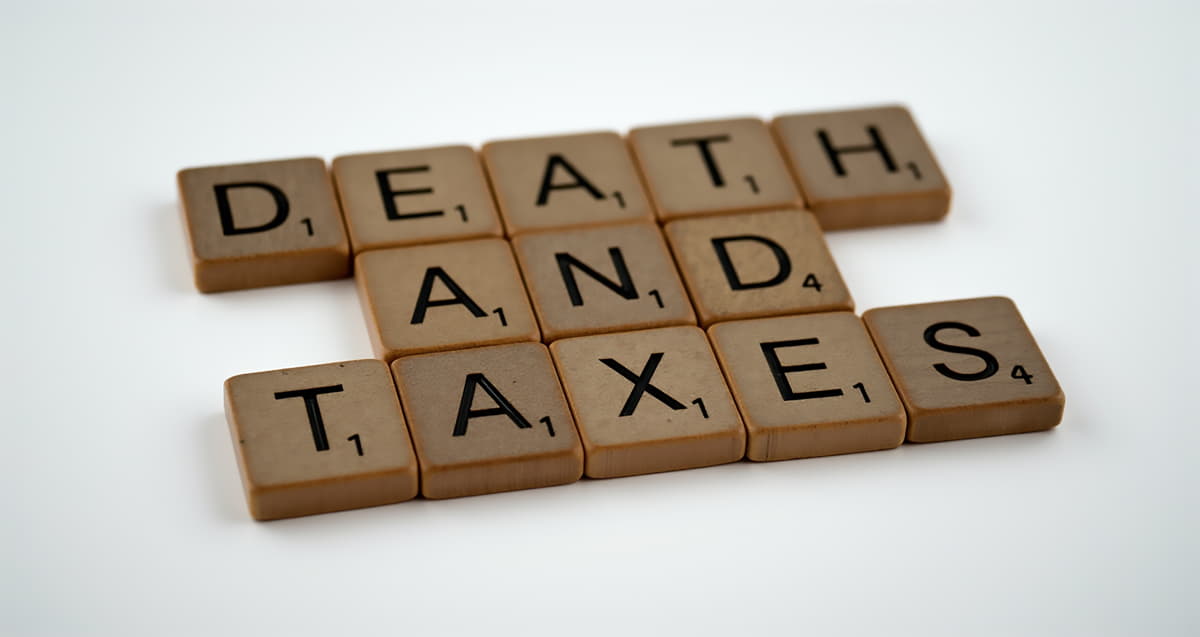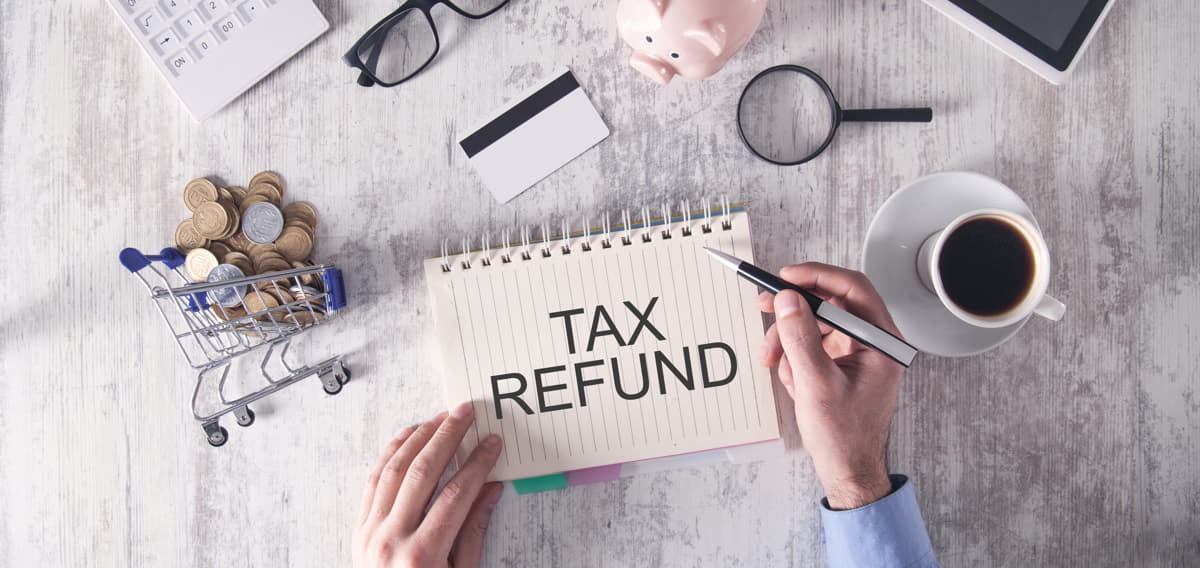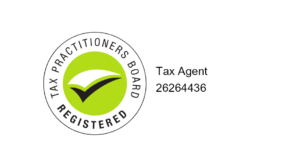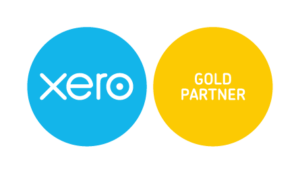If you are a small business owner or planning to be one, you might have encountered the term bookkeeping. It is essential for business operations as it helps keep financial plans in check and updated. Your taxations will be simplified, among many other benefits for your business, leading to healthy financial decisions. In this article, we explore ten essential tips to help you steer clear of the most common bookkeeping mistakes you might come across as follows: 10 top tips to avoid common bookkeeping mistakes for small businesses Bookkeeping mistakes happen often, and it may be due to ignorance or sometimes lack of knowledge. With us are some of the tips you should put into practice to avoid common bookkeeping mistakes: 1. Use bookkeeping software for seamless operations. Bookkeeping has revolutionized the business world as entrepreneurs can easily make sane financial decisions for their services. Incorporating good bookkeeping software for small businesses has saved many from falling into pitfalls. Whether you manage a start-up or are a sole trader, always consider using software like Xero to help achieve tailored business results. 2. Stay organized Behind every strong business is an entrepreneur who’s well-planned and concerned about their bookkeeping plans in check. Overcoming confusion and undecided decision-making through planning will help adequately run a business and improve its functioning. Always remember to keep receipts and other relevant materials to help guide your financial steps and avoid last-minute rush. 3. Separate personal and business finances Separating personal and business finances is always essential, as it helps curb errors and confusion that may arise. By separating the two, you will have a well-structured organization and simplified work that will yield accurate findings. You can consider using different options, such as having two bank accounts and credit cards for business and personal use. 4. Stay ahead of deadlines. Stay ahead of the curve by complying with tax laws through planning to avoid tax-related penalties and fines caused by lack of preparation. You can avoid this by setting a to-do list reminder to help you stick to your schedule and remember important dates. Whether through quarterly tax filing, superannuation payment, or other activities, always keep track of important dates to help with guidance. 5. Keep track of small expenses. It’s easy to forget small expenses, as entrepreneurs may think they won’t significantly impact their businesses. No matter how small an expense is, it will likely accumulate larger if not sorted at that specific time. Record every transaction through accounting and bookkeeping software to give you a comprehensive overview of your financial situation. 6. Choose the right bookkeeper for your business. As a small business owner, you must find solutions to your financial problems. Save yourself from the shackles of errors and inconvenience by hiring a bookkeeper to help save you from risks. Whether you run a small company or an individual business owner, hiring the right bookkeeper expert in your industry is essential. 7. Regularly reconcile your accounts. How often do you reconcile your accounts? Regular reconciliation of financial records helps ensure that data are accurate and current. Keep records constantly updated and maintained, whether manually or through bookkeeping software. 8. Track your cash flow. Are you looking to keep your business operations smooth? If so, try tracking your cash flow management to understand it better. Ensure you have enough money for expenses coverage and continuously invest in your growth. For more on cashflow management tips, check out the Australian Small Business and Family Enterprise Ombudsman (ASBFEO). 9. Understand your bookkeeping wage expectations. When hiring a bookkeeper, always ask for the pricing quotation they charge for their services. The average amount a bookkeeper can offer might vary depending on factors such as experience and location, among others they may request. Always ensure the amount they ask for is within your financial capability to avoid inconveniences regarding fee charges. 10. Outsource professional help Sometimes, bookkeeping can be overwhelming, but with a guide from an expert, you can save time and focus on your business. At KSH TAX, we provide bookkeeping services for small businesses in Australia, ensuring that your financial records are accurate, up-to-date, and tax-compliant. We offer bookkeeping services specifically tailored to your business needs and requirements. By outsourcing your bookkeeping tasks, you can focus on what you do best—growing your business. Key takeaway With the right tools and knowledge, bookkeeping doesn’t have to give you stress any more. Always keep your finances in check and make informed decisions involving your small business. If you need assistance from an expert with your small business bookkeeping, contact us at KSH TAX.
How to Avoid Death Tax on Superannuation
No one is ever ready or prepared when it comes to matters dealing with death. However, planning to avoid and minimize the costs of death tax on superannuation is key. Always plan and devise strategies to protect your wealth and pass it on to your beneficiaries. This article gives simple solutions for strategizing to avoid the death tax on superannuation and more insights. Let’s get right into it: How to avoid death tax on superannuation While Australia no longer has a traditional inheritance tax, we still have a similar tax on superannuation death benefits paid to grown-up kids, among other beneficiaries. With us are some of the strategies you can put in place to help avoid these taxes as follows; 1. Nominate dependents as beneficiaries. Planning on whom you want your superannuation death benefits go to will save your family from the tax hassles that come after death. You can always nominate your beneficiaries, from kids and spouses to anyone of your liking who financially depends on you. Always ensure the list of nominees is up to date and legally bound by the law. If you’re wondering whether the money will be taxed, you should know it is generally tax-free for beneficiaries. 2. Withdraw superannuation before death. You can also consider timing by withdrawing your death superannuation money before you die. This will help you avoid tax charges associated with it. The withdrawal can only apply to eligible individuals who have turned 65. Also check: ATO on early superannuation withdrawal to see if you are eligible. 3. Use testamentary trust Consider using a testamentary trust to help manage and distribute your benefits efficiently amongst your beneficiaries. Through a testamentary trust, funds will be well distributed among beneficiaries, with a higher chance of reducing any tax liabilities. A testamentary trust establishment will also ensure that each beneficiary can access their money as stated. 4. Consider re-contribution strategies As re-contributions require extensive assessment and clarification, you can always seek professional advice from a qualified financial advisor or tax professional to proceed. You can simply withdraw the funds and re-contribute them as non-concessional contributions. This will help you convert it to become tax-free. Also through re contribution, you can lower the chances of your non-dependent beneficiaries being taxed. 5. Review your insurance policy. Ensure you have reviewed your insurance policy to minimize tax cuts that may increase taxation fees. 6. Seek professional advice If you are in doubt or need clarification, it’s a good idea to seek advice from a professional financial professional who will guide and encourage you to make informed decisions. FAQs How much tax is payable on superannuation death benefits? According to the ATO, the tax rate applicable to non-dependents is 15% for the axed element and 30% for any untaxed element.
Is Stamp Duty Tax Deductible? A Comprehensive Guide 2025
Buying properties raises many questions amongst buyers, such as “Is stamp duty deductible?” and many other tax-related questions. Truth be told, there are several costs involved apart from the purchasing price. The stamp duty tax imposed on property ownership will always be a factor to be considered, whether as a property buyer or investor. In this comprehensive guide, we explain everything you need to know about stamp tax deductions and address the key questions you may have. Is stamp duty tax deductible? Property investment has brought many tax advantages, which have helped individuals maximize their returns. In order to make the most of these benefits, one needs to understand which expenses are tax-deductible and which ones are not. Whereas many costs associated with investment properties can be considered tax deductions, stamp duty tax is not. According to the ATO, stamp duty tax is considered and classified as a capital cost incurred during property acquisition. This means it’s part of the property’s cost base and cannot be deducted for tax purposes. Can you claim stamp duty on tax? For investors looking to own properties, there will always be that question of whether you can claim stamp duty tax or not. Well, it depends on the context of the purchase you are making. Stamp duty reduces taxable income through some claims, but it is not deductible to residential properties meant for personal tax purposes. Regarding investment properties, the deduction is included in the cost base for capital gains tax (CGT) as it’s not an immediate tax deduction. Is stamp duty included in the cost base? People always want to know whether stamp duty is included in the cost base. Stamp duty is included in the cost base of investment property for capital gain taxes. It helps reduce capital gain and CGT liability when a property is sold. Here’s what’s in the cost base; Purchase price of a property The stamp duty paid Conveyancing fees Any other transaction-related costs Summary Navigating property taxes and deductions may be challenging, but with a guide from a registered tax agent such as KSH TAX you can consider your stamp duty tax worries handled. Book us and get a free consultation!
6 Tips for Choosing the Right Accountant for Tax Preparation
If tax planning and preparation have become your constant source of worry, then you need not be anymore. Having a qualified tax accountant to assist with tax planning can give you stress-free sleep. Tax preparation can be particularly challenging for individuals with unique financial situations. The lodgment process may sometimes involve numerous details and paperwork that can become overwhelming. The process can be easily simplified with the help of a skilled accountant to facilitate taxpayers’ tax compliance. What to consider before looking for an accountant for tax preparation Before getting busy on the computer looking for an accountant to help with taxes, you must first understand what you need as an individual or business. Here are some of the factors you might take into consideration; Complex financial situation Some financial tax returns may be much simpler to file compared to others, which requires a lot of inputs and additional details. A complex tax return, whether for a business or personal account, requires an accountant with specialized skills in that specific area. Industry-specific knowledge Different industries have different ways of filing their taxes. Whether you are in the construction, real estate, or technology, going for an experienced accountant can help provide you with tailored results. Proactive tax planning Find a good tax accountant who will proactively get your taxes well-planned and minimize on liabilities. Through their expertise, you will be able to achieve financial goals set. Technology and software Consider going for an accountant who has knowledge on advanced tax software and technology for easy tax preparations. 6 tips for choosing the right accountant for tax preparation Choosing the right accountant for tax preparation requires a lot of research and references from people who have interacted with their services. With us are some of the factors you need to consider as follows; Qualifications Consider going for a qualified accountant who has knowledge of what they are doing while offering you services. Through conducting researches and findings, you will be able to save yourself from grave tax mistakes that could easily be avoided. Go for skilled accounting professionals who are qualified to give you more excellent and tailored results. Good communication skills Communication is key and not every accountant knows how to express themselves to give clients a clear breakdown of what needs to be done. It’d be advisable to choose someone who’s transparent enough to provide you with detailed information being carried out in your accounts and advices. Client service Choosing an accountant who shows interest and puts their client’s needs first is a win. This will create a healthy relationship between the two. Consider going for accredited accountants who can provide you with excellent services enough to make you their regular customer. A good accountant should be able to address any upcoming concern to help you solve tax issues. Accountant charge fees An experienced accountant should be able to quote their service charge fees. How much an accountant would charge depends on various reasons that they may provide. Some of the reasons may be due to the complexity of taxes situations and work to be done. Consider their location If you are dealing with a tax accountant, consider choosing one close to your country of residence. It’s best to be sure that the accountants you have chosen have a better understanding of local tax laws so that they can offer you well-crafted and tailored services. Specialization Consider hiring specialized and experienced accountants to file your returns. If you are a small business owner, you can go for accountants who have experience dealing with small businesses, e.g. KSH TAX. This will save you from a lot of back-and-forth and save you time and money. Summary Choosing the right and qualified accountant may be crucial since, as a client, you need someone who will take care of your accounts. Get an accountant who will correct inaccurate information on tax returns and minimize your tax liabilities.
How Long Does a Tax Refund Take in Australia
Nothing beats the stress brought about by late tax refunds. If you are counting on refund money to help deal with an urgent matter, consider going for a different option. Regarding refunds, various methods and papers might cause a delay or quick processing to be sent to your bank account. If done online, processing your refund may take the Australian Tax Office (ATO) 10-30 days. How long does it take to get a tax refund take in Australia? Sometimes, a tax refund takes forever, and other times, it may be as quick as possible. To avoid disappointment, it’s advised not to put all your hopes on it since you may never know how long it will take to be processed. The days depend on how many documents you must submit to ATO. Here are the specific number of days it may take your return to be processed accordingly; Simple online return: The refund will take ten business working days to be processed. Complex online return: If your tax refund is complex and done online, it may take you a waiting period of 30 working business days for it to be processed. Paper return: If the process is done through the paper format, the days it will take for you to receive a refund are 50 business working days. What are the factors that might affect processing time of tax refunds? Based on how the workload of the ATO system, it might take longer for a tax refund to be processed. The waiting period given by the ATO may vary due to various reasons including the complexity of your returns or the ATO system. Some of the reasons your tax refunds may be late include; Paper lodgment, takes about approximately ten weeks(50 days) business working days to be processed. The process is complex and it may take an individual a number of documents and details to fill. This may happen because some may have multiple income sources and investments, among others needed for verification purposes. Slow down by the ATO machines given during the tax period hours. The slowdown may be experienced mostly during tax filing periods and may slow down its functionality. How to calculate your tax refund When calculating tax refunds, mainly use an online tax refund calculator to input your income and other relevant financial information. Once you have completed the inputs and ensured that you have provided all the necessary, correct information, you will receive the estimated tax refund in your account. How to check the status of your tax return Checking to see the progress of your refund is reasonable, given you need to be able to tell how far or how much longer you’ve been waiting for. To get the status, you need to log in to the ATO’s my GOV portal and provide your details to log in. Through the website, you will see how far along your processes are. Wrapping up Not all taxes are meant to be refunded. Others are non-refundable tax offsets, such as the low-income tax offset, which may reduce your tax liability but will not lead you to a tax refund if you don’t owe any tax. Note: You can’t claim a fee if you associate your taxes with an unregistered tax agent.
How Much Tax Does Small Businesses Pay in Australia?
The beauty of every small or big business is its ability to pay taxes for a seamless business run. Starting a business and having to think about taxes can sometimes be confusing. You will encounter many other tax-minded questions before joining the market that you need help with. If you’ve ever been deep in thought, our articles clearly answer your worries. The business world can be challenging sometimes, primarily for small business owners (SMEs), if you don’t know the tax rates charged to them. The good news is that all these questions can be answered if you get guidance from leading tax- offering companies like KSH Tax. Are you curious to know what will work best for your small business tax preparations? Well, stay on and read this piece to help give answers and get you the confidence of an entrepreneur you need; Table of content How much tax does a small business pay in Australia? What are some of the small business tax exemptions? Reasons you should consider KSH Tax as your SME tax services solution. FAQs How much tax does a small business pay in Australia? Small business tax rates vary in Australia as different companies and groups offer different rates. Tax filing for small businesses has become a game changer as entrepreneurs know their obligations, keeping them on the right side of the law. With the help of a company tax calculator, their work has been made easy, hence exercising their patriotic rights on time with the correct data keyed in. The amount of taxes SMEs are required to pay depends on their size and the tax rates they have. The tax rates might change from time to time. There are also different tax charges for different businesses, e.g., taxes for sole traders and companies, among many others. With the popularity gained through the use of SME tax calculators, small business owners’ tasks have been simplified since they can understand the amount of SME tax deductions happening on their end. What are some of the small business tax exemptions? Being a small business owner, you are always looking for the best and cheapest ways to suit your services regarding taxes. This is where SME tax exemptions come in. ATO allows small business owners to reduce or disregard some or all of their capital gains depending on individuals’ options. According to ATO, the small businesses capital gain tax concession includes the following; Claim and apply for 15 years of exemption on their business assets to be reduced or not to pay for their capital gain tax (CGT) when disposing of any active assets. You can apply for the 50% active asset reduction provided your business meets the conditions, which are well-known among all four small business CGT concessions. Small business retirement offers many options to choose from and apply once you meet the requirements. Small business rollover allows small business owners to defer all or part of the capital gain made from sold active sets. Individuals are encouraged to apply for as much capital gains as they wish. Note: These rules only allow small businesses eligible for the exemptions. Simplify tax compliance for Australian SME with KSH TAX When it comes to running a small business, being tax compliant is just as important as being profitable. But what if you could be tax compliant and save money? That’s where we comes in. Here’s why you should choose KSH TAX as your SME tax service: We offer affordable charge rates for our services. Whether you’re a sole trader or part of a partnership, we have a tax solution to suit your need. Experienced and keen to detail accountants are thorough when it comes to your books. No errors, no hassle, no stress and you can be sure your taxes are done right. Free tax consults as we value long term relationships with our clients. To help you understand your tax obligations we offer free tax consults. This personal approach allows us to tailor our services to your business. We deliver on time of which we give a full refund of your money if we fail to deliver at the specific given time. Partner with us and let us enable your small business to grow. Let us handle your taxes so that you can focus on business. FAQs How much tax should you put aside for a small business? Depending on the business type, SMEs have different income tax charges that the business owner needs to provide. Whether you are a sole trader or a company, the charges won’t be the same. How much a business may pay varies. What are the tax rates for small business companies in Australia? Company taxes have changed over time. For the year 2017-18, they were 27.5% until 2021-2021, when they changed to 30% for full company rate payment. The 30% rate charges are applicable to all companies that are not eligible for lower rates. For companies with base entity, a 25% charge rate is applicable. This only applies to companies with an aggregated turnover threshold of $50 million for the previous income year. How much can a sole trader earn before having to pay taxes? Unlike companies, sole traders’ taxes are categorically under individual taxes. Their tax-free threshold can range from $0 to $18200. The amount will be based on your business’s income at different rates. Do you want a better experience at an inexpensive charge for your taxes? Get in touch with us at KSH TAX for a better solution!
How to Become a Tax Agent
Have you ever considered becoming a tax agent? How much fun would it be to be amongst some of the most important people in the world? Earning a living out of saving people in need of your tax services. If that’s you, then this article will help you get there. Venturing into the world of being a tax agent needs learning and determination because a lot of people depend on your expertise. They need to trust that you are a qualified and registered officer who knows what they do when work calls. In this article, we focus on all you need to know about tax agents and more, as follows; How to become a tax agent If the question, “How can I become a tax agent? “has ever been in your mind, you are in the right place for the correct answer. Yes, you can. The one thing you need to know about is that you have to go through the Tax Practitioners Board (TPB) with your rightful documents. You will get the license you need from the TPB portal, whether you register as a company or an individual. Depending on your choice, the license should last you for at least a year. Requirements needed to become a registered tax agent For one to become a registered tax agent, there are specific qualifications they need to have, which include the following, according to the Australian Government; You must be 18 years old and above, which is the eligible age for application. You must be qualified for the position. You must have and provide proof of documents such as education papers, certificates of awards, transcript, etc. You must be of sane mind and a proper fit for the position. You must be able to maintain professional indemnity insurance to meet their requirements. If you are running a company, you must have enough registered tax agents to hold office and provide clients with tax agent services. Note: To become a paid and registered tax agent, whether as an individual or a company, you need to register yourself with the Australian Government and be approved to enter the business. What are the online services for agents? The online services for agents (OSFA) is simply a system that allows BAS and tax agents to access the services offered and their clients’ information. Through online services, agents can prepare, lodge, and even receive instant information they need to serve their clients. Partner with KSH TAX to help you get started as a tax agent Are you passionate about becoming a tax agent or want to run a tax agent firm? If so we are looking for you. Join us as a franchise and let us help you grow your career us as a tax agent. Here’s what we offer; Access to leading tools like Xero among other software solutions for a seamless business run. Regular training to keep you and your team updated with latest accounting practices. Tailored marketing assistance at no extra fee charges. Dedicated accounting assistant to help you run your services smoothly, meet deadlines and offer support where need be. Bottom line Practicing would be a good start if you are inspired to become a tax agent. Provided you comply with the TPB requirements and needs, your business will be registered, and you will be good to go as a tax agent. From there, you can start earning your hard-earned cash in the comfort of your office. It’s truly never too late to begin your career!
